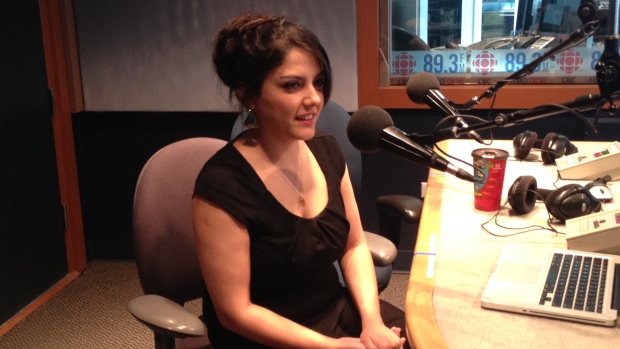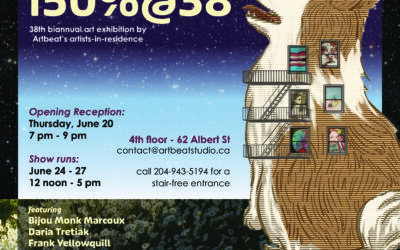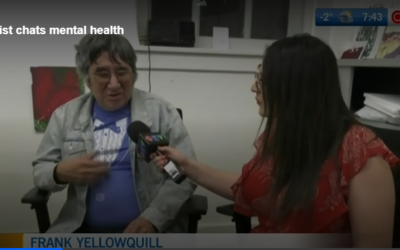Immigrants and refugees in Manitoba face stigma and shame, researcher Ogai Sherzoi says
By Danelle Cloutier, CBC News | Feb 29, 2016

Ogai Sherzoi is the facilitator of Exploring Immigrants and Refugees’ Perceptions and Access to Mental Health Services in Winnipeg. (CBC)
A University of Manitoba student is looking for participants for a photo project aimed at showing the barriers immigrants and refugees face to accessing mental health services in Manitoba.
“There’s one in five individuals who are impacted by mental health issues, but the rate for immigrants and refugees is quite higher,” said Ogai Sherzoi, who is researching the topic as part of her master’s of social work project, titled “Photovoice: Exploring Immigrants and Refugees’ Perceptions and Access to Mental Health Services in Winnipeg.”
- Syrian refugees may work through trauma with art, horses and mindfulness
- Newcomer support workers learn to offer mental health help
- Liberal government fully restores refugee health care program
Refugees and immigrants in Canada may not have had access to mental health services in their country of origin. When they do arrive in Canada, mental health issues are sometimes kept secret because of stigma, she said.
“They’re [too] ashamed to even admit that they’re dealing with this to even come out and actually seek [help] for services,” she said. “This project would bridge that as well by having families [see that] sometimes it’s OK to ask for help.”
Questioning perceptions
Participants will take photos that symbolically answer questions about perceptions of mental illness, their experiences accessing mental health services and what they would like to see changed about the mental health services offered.
Sherzoi said she’s looking for five to 10 participants between the ages of 18 to 54 who have lived in Canada for more than two years and have, or are, dealing with mental health problems. In addition to taking photos, they will attend five confidential group meetings to share their stories and photos.
“They can explain what they’re feeling or what they’re seeing or what their experiencing without having to use too [many] words or be limited by the language,” she said.
Their photos and stories will then be displayed at an exhibit at Studio Central on Kennedy Street, likely this May.
“Not only does it help service providers to gain an understanding of how they can be more inclusive or how to reach these individuals, but also within their own communities, raising that awareness and having those conversations,” she said.
The participants can keep their names confidential for the exhibit, Sherzoi said.
‘Social factors have a big impact’
So far Sherzoi’s research has suggested that immigrants are fairly mentally stable when they first come to Canada.
“As time progresses, unemployment, stigma, discrimination — all those social factors have a big impact on their mental health,” she said.
Sherzoi came to Canada from Afghanistan at the of age nine with her mom, brother and sister. Her extended family helped them settle in Canada and deal with the stress of the settlement and integration process.
“I’ve always wanted to give back because I knew the importance of having supports in your life,” she said.
Jan Nato, the community art program co-ordinator at Studio Central, hopes Sherzoi’s research helps increase the number of immigrants and refugees in their program.
“Newcomers have been a population that are sort of difficult to reach for reasons that we’re exploring — we’re a day program … so we recognize that might be one of the challenges, but also language issues,” Nato said.
“We have heard casually in conversation, generally with other service providers and some members of the community, what the barriers might be, but we’re looking forward to hearing in this very thought out process what those barriers are.”
Those interested in participating in the project can contact Sherzoi at 204-471-3969 or umsherzo@cc.umanitoba.ca. The first meeting is this Friday and bus tickets are available for people who need transportation.
[hr]





